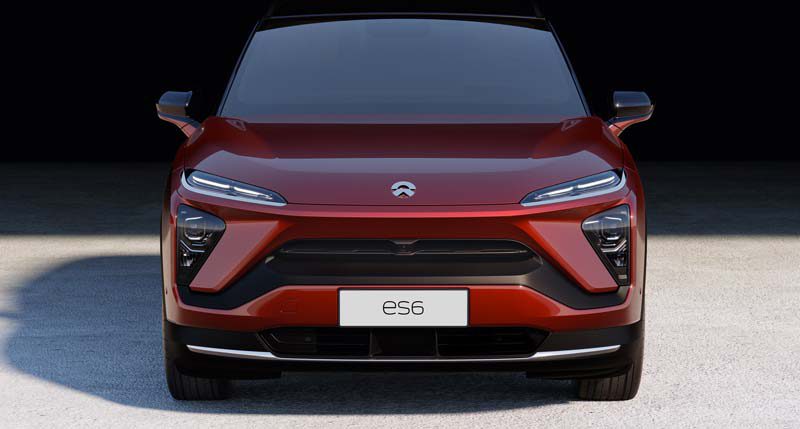Chinese electric carmaker Nio has launched it’s latest EV offering, the all-electric ES6 SUV, confirming a range of up to 510km at its annual “NIO Day” in Shanghai this week.
The ES6 is the Chinese startup’s follow-up from its higher specced, 7-seater ES8, its first production vehicle that it launched in December 2017.
Considered by many to be China’s answer to Tesla, Nio caught our attention when it announced earlier this year that it had successfully locked in investment from Tesla’s largest external stakeholder, Baillie Gifford.
The ES6 in turn can be compared to the Tesla Model 3 (let’s ignore the body style for now): the Californian electric car maker has already opened orders for the high-performance all-wheel drive model and long-range all-wheel drive model and is commencing deliveries next year.
Like Tesla, Nio is offering two models: a standard and high-performance versions which it says will cost 358,000 and 398,000 RMB respectively – that’s around $A72,000 for the standard and $A80,000 for the high performance model.
Both are available with two battery pack options (70kWh or 84kWh), and a dual motor config (160kW at the front and 240kW at the back) boasting energy conversion rates of 97%.
The performance model with the larger battery is said to have 510km range (according to its NEDC rating – so it is yet to be seen how well this will translate in real world driving conditions).
 While Tesla’s high-performance Model 3 can outdo the Nio ES6 equivalent in terms of acceleration (3.5 seconds from 0-100km/hr compared to 4.7 seconds for the ES6), the ES6’s range is comparable to the Model 3 – as is the price, in China at least, since Tesla dropped its Model 3 pricing by around 10% this week.
While Tesla’s high-performance Model 3 can outdo the Nio ES6 equivalent in terms of acceleration (3.5 seconds from 0-100km/hr compared to 4.7 seconds for the ES6), the ES6’s range is comparable to the Model 3 – as is the price, in China at least, since Tesla dropped its Model 3 pricing by around 10% this week.
Nio are also keen to point out the strength of the hybrid architecture, a structure made of aluminum alloy and carbon fiber that gives the ES6 an overall torsional stiffness of 44,930 Nm/degree.
As for body styling, what the Nio ES6 offers that Tesla is yet to do is bring to market a more affordable all-electric SUV – something that Musk has high on his priority list but is yet to come to fruition.

Bridie Schmidt is associate editor for The Driven, sister site of Renew Economy. She has been writing about electric vehicles since 2018, and has a keen interest in the role that zero-emissions transport has to play in sustainability. She has participated in podcasts such as Download This Show with Marc Fennell and Shirtloads of Science with Karl Kruszelnicki and is co-organiser of the Northern Rivers Electric Vehicle Forum. Bridie also owns a Tesla Model Y and has it available for hire on evee.com.au.



